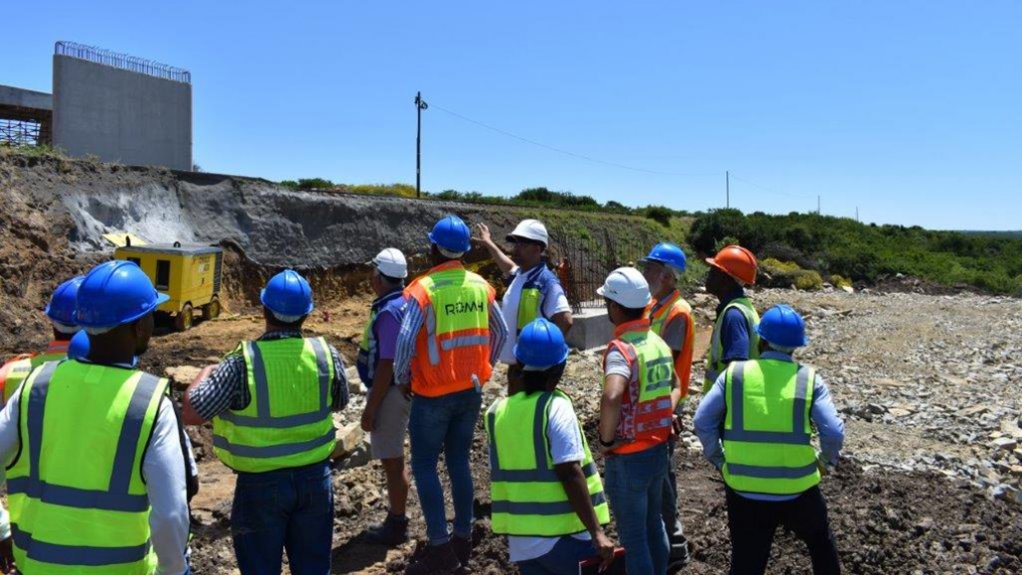Extreme weather associated with climate change has resulted in many roads becoming impassable, sustaining serious damage or being completely destroyed.
The South African roads industry has sought to minimise the impact of climate change on our roads through emergency repair initiatives and continuous improvement of asphalt products, explains Society for Asphalt Technology (SAT) VP Joanne Muller.
However, she stresses that roads infrastructure requires a holistic approach to routine maintenance of the surfacing as well stormwater services to maintain overall service levels.
Engineering industry body South African Institute of Civil Engineering’s 2022 Infrastructure Report Card found that national routes are well maintained, while some provincial, metropolitan and municipal road networks are not in good standing.
“SAT is a society of individuals who share a common interest in the asphalt sector. Our main role is to facilitate the sharing of knowledge, experience and best practice to enable all tiers to learn from one another to bridge this gap, and this is a role we take very seriously,” says Muller.
However, there is limited investment in roadway upgrades, rehabilitation projects and the routine road maintenance activities that are required to ensure that current infrastructure remains at suitable operational quality at national, provincial and municipal levels.
Damage owing to extreme weather exacerbates the funding challenges, as funds from other sectors or projects tend to be reallocated to activities such as emergency repairs. As a result, road conditions are only temporarily improved and remain vulnerable to extreme weather.
To tackle this cyclic challenge, Muller explains that a shift in best practice standards and road design is required.
Previously, the primary focus was mainly on traffic volumes and geometric design, but going forward the focus should include climactic conditions pertaining to temperature and moisture effects as equally important.
“Traditionally, industry has relied on historical climate data, but the severity of recent events has highlighted the need to implement future projections or predictions to build climate-resilient infrastructure,” she says.
“We need to develop skills and knowledge in the industry regarding proper asset management, as well as an awareness of technical advancements that can benefit infrastructure in the long term.”
She explains that the industry is losing young professionals to other sectors, locally and internationally, owing to the cyclical nature of infrastructure development. SAT is working hard to attract students and new industry entrants to join the society so that existing members can use their extensive collective expertise and wisdom to help mentor and develop tomorrow’s asphalt industry leaders.
“As a technical industry, the importance of skills- and knowledge-based development is paramount. The world and, by extension, infrastructure needs around the globe, are ever changing,” says Muller.
Hurdles
The asphalt industry is contending with various challenges, including materials supply and loadshedding.
The availability of materials, particularly the consistent supply of bituminous binders, has become increasingly difficult, owing to three of the four local oil refineries closing, leaving only one refinery to supply binder locally, explains Muller.
As a result, the local industry has to rely heavily on imported binders, with the local industry’s approach to managing quality risks having had to expand significantly.
In this regard, storage capacity nationally has had to be upgraded considerably, which has, with the import costs of bitumen binders, resulted in significant additional costs, adds Muller.
Loadshedding has also impacted the local asphalt industry significantly.
Road-building materials from quarries, binder manufacturing and modifying processes, as well as the asphalt manufacturing processes, require stable energy supply so that the manufactured materials conform to the specifications required.
Alternative energy sources for these activities are not easily implemented, but several options are being actively explored, says Muller.
Stakeholders require the timely provision of cost-effective and environmentally conscious road infrastructure; however, without stable energy supply, project delays and waste impacts will affect all in the industry, and ultimately the general public and the environment, she concludes.
Edited by: Nadine James
Features Deputy Editor
EMAIL THIS ARTICLE SAVE THIS ARTICLE
ARTICLE ENQUIRY
To subscribe email subscriptions@creamermedia.co.za or click here
To advertise email advertising@creamermedia.co.za or click here













